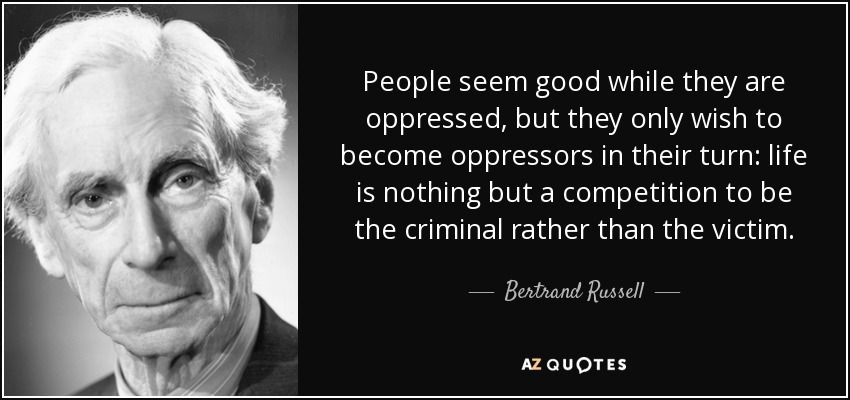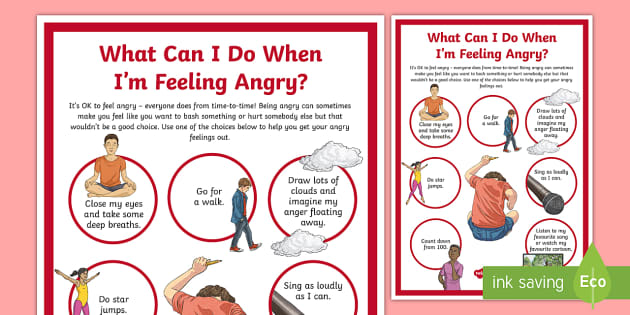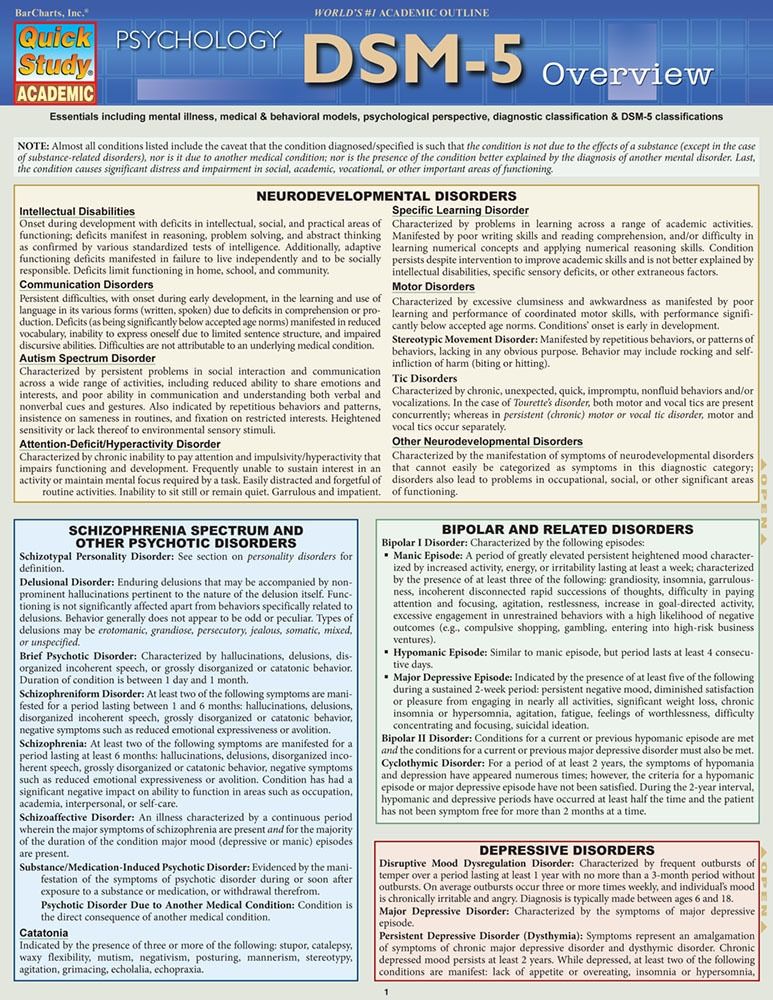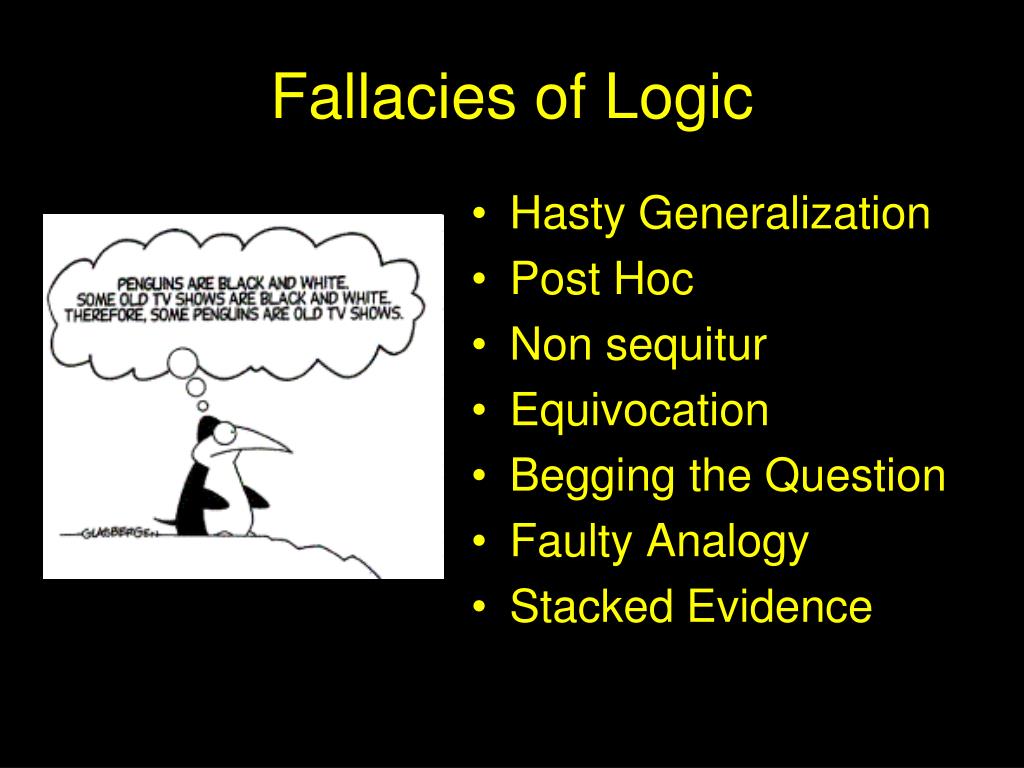How to help someone involved with a narcissist
How to Deal With a Narcissistic Family Member & How To Recognize One
An estimated 5% of the U.S population may have narcissistic personality disorder (NPD), which means over 16 million people might experience the condition. With that many people experiencing NPD, there is a fairly high probability you know someone who is severely narcissistic. When confronted with toxic narcissism, removing yourself from the relationship is often the best course of action. But what can you do when that person is a family member?
- How to Recognize a Narcissist
- How to Deal With a Narcissistic Family Member
- Avoid Direct Confrontation
- Don’t Accept Harmful Behaviors
- Focus on Choices
- Set Limits
- Get Support and Professional Counseling
Below, we’ll help you deal with a narcissistic family member by explaining how to recognize a true narcissist and the steps to take to protect your own mental health. Keep reading for practical tips for interacting with a loved one who has NPD without sacrificing your well-being or your familial ties.
How to Recognize a Narcissist
Narcissism is far more complex than mere vanity or selfish tendencies. True narcissism is a diagnosable personality disorder known as narcissistic personality disorder. NPD is described by the Diagnostic and Statistical Manual of Mental Disorders (DSM) as a pattern of grandiosity, the need for admiration and a lack of empathy. An individual with NPD is fixated on their own uniqueness, self-importance and sense of entitlement.
Essentially, narcissism is characterized by a lack of empathy or desire to genuinely understand others’ needs. Someone with NPD is often solely concerned with themselves and their needs, unable to properly process or engage with the world around them. Instead, a narcissist operates as though everything they embody — their needs, ideas, accomplishments, problems and more — are a higher priority than anyone else’s.
The sense of entitlement someone with NPD has can be so extreme, they expect unreasonable special treatment and will do whatever it takes to be the center of everyone’s universe — for better or for worse. This need to be the center of attention and lack of awareness for others’ emotions often leads to toxic behavior.
This need to be the center of attention and lack of awareness for others’ emotions often leads to toxic behavior.
While the symptoms of NPD may take many forms, they are linked by entitlement, self-importance and a disregard for the needs and feelings of others. Here are some of the main signs of NPD to look out for:
- Preoccupied with self: Someone with NPD can be consumed with disproportionate senses of self-concern, self-centeredness and self-consciousness. Their strong feelings of entitlement may lead them to expect constant attention and admiration from others.
- Unrealistic expectations: The expectations of constant attention and admiration are paired with more unrealistic expectations that others will instantly comply with all their wishes without question. A narcissist’s entitlement can make them think they deserve special accommodations and favors.
-
Dehumanizing others: Those with NPD might interact with people based on whether they believe that person can offer something beneficial to them, such as social status, a job or emotional fulfillment.
 If a narcissist determines that person has failed them, they will most often devalue or discard them. In this way, narcissists view people as means rather than individuals.
If a narcissist determines that person has failed them, they will most often devalue or discard them. In this way, narcissists view people as means rather than individuals. - Lack of empathy: Narcissists often lack empathy as a result of dehumanizing others. Someone with NPD might not attempt to understand the perspective or feelings of anyone besides themselves, resulting in a lack of compassion and remorse for any wrongdoings.
- Obsession with appearances: Narcissists can be fixated with beauty and other aspects of their appearance to others, such as wealth, fame, success and reputation. A narcissist commonly fantasizes about great success, power and beauty.
- Pride: Being obsessed with appearances can cultivate a prideful personality. A narcissist might come off as vain or immodest as a result of their pride.
- Exaggeration: To boost their appearance and importance, an individual with NPD might exaggerate their skills and accomplishments.
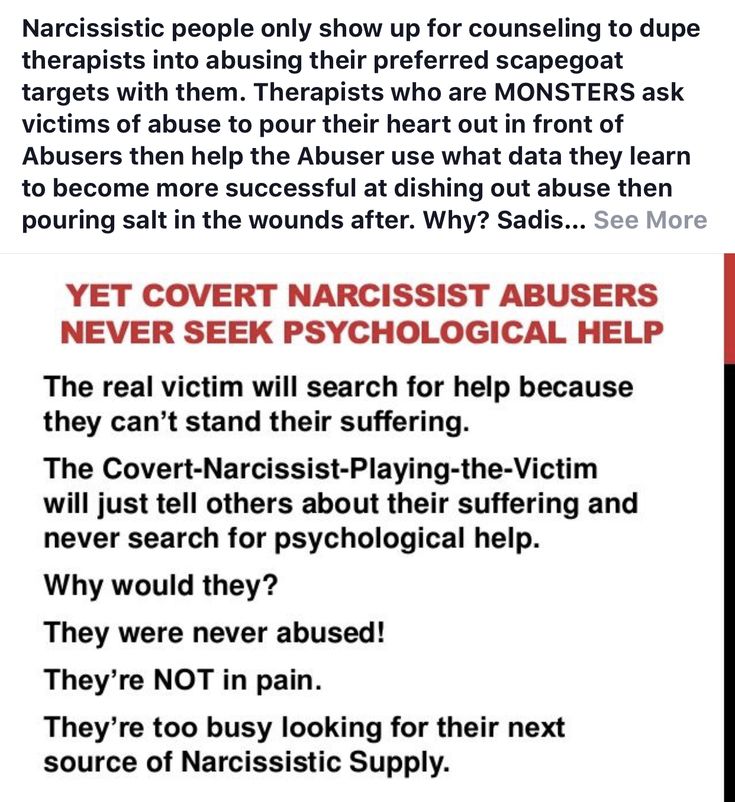
- Inability to accept criticism: Because a narcissist has a sense of pride and a high view of themselves, they are often sensitive to negative feedback and criticism, even if it is constructive. A narcissist can become defensive or angry at even the slightest criticism, making it challenging to call them out for their problematic patterns of behavior.
- Envy: A person with NPD needs to constantly feel like the most successful and powerful person in the room. If they feel as though someone else is outshining them, they can quickly become jealous and may try to knock the other person down. Due to sibling rivalries, envy is one of the most common narcissistic sibling characteristics.
- Mood swings: Someone with NPD is often psychologically fragile and might struggle to regulate their emotions. This inability to properly balance their feelings can result in aggressive impulses, verbal assaults and manipulation.
- Broken or strained relationships: Narcissists tend to have difficulties within their relationships because loved ones may not tolerate put-downs, contempt and carelessness.
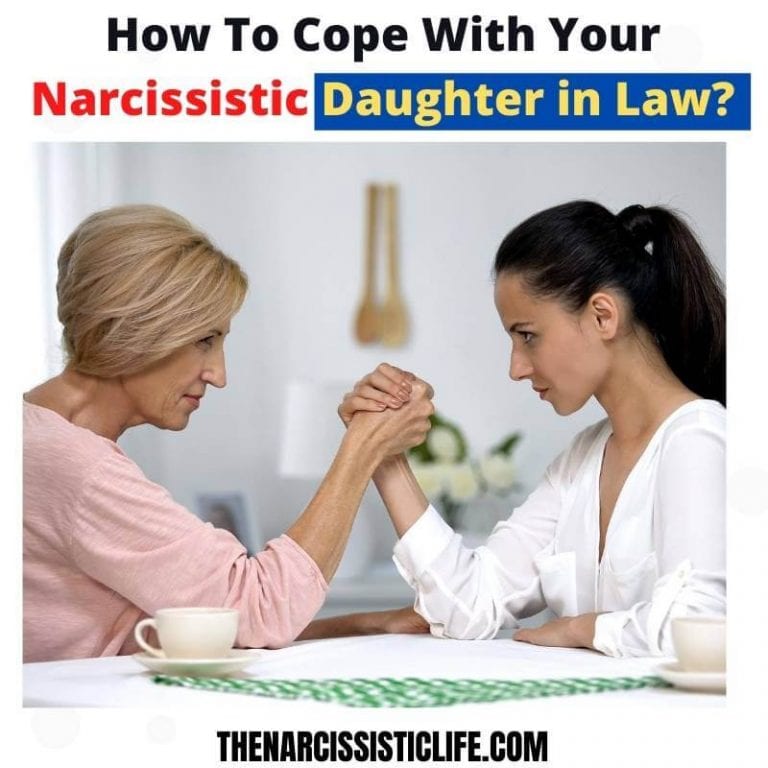 Often, people reach a breaking point and have to cut ties with a narcissist.
Often, people reach a breaking point and have to cut ties with a narcissist. - Low self-esteem: Despite the outward appearance, those with NPD may not love themselves as they want others to believe they do. Feelings of superiority are usually rooted in a deep sense of insecurity. They typically express poor self-esteem via self-deprecation or arrogance, working hard to overcompensate for their lack of confidence.
- Need for approval: A narcissist’s lack of self-esteem drives them to actively seek validation from others. Whether the narcissist’s inadequacies are real or imagined, they experience a significant need for approval from other people.
It is important to remember that narcissistic qualities run along a spectrum. While we all can go through bouts of selfishness or self-consciousness, there is a difference between having a few narcissistic characteristics and having NPD. Those who feel they may be a narcissist most likely are not one because true narcissists lack the empathetic sort of self-reflection required to wonder whether they have a personality disorder.
In the same way we should avoid self-diagnosing NPD, we should resist deeming others to be narcissists. Only a psychiatrist or qualified therapist should examine and diagnose anyone’s mental health and possible personality disorders. But we can identify the narcissistic traits we observe in others to try to avoid getting caught in a toxic relationship.
Book Online Our Therapists
How to Deal With a Narcissistic Family Member
Many times, cutting a person who displays severely narcissistic qualities out of your life is the most viable and effective way to prevent further emotional trauma or abuse. This decision may not be an option if you are related to or living with someone who has NPD. When leaving is not an option, you need a new set of strategies for dealing with a narcissistic family member.
Discover how to deal with a narcissist you can’t avoid with these tips:
1. Avoid Direct Confrontation
Because those with NPD are extremely sensitive to criticism, calling a true narcissist a narcissist typically backfires and worsens the situation.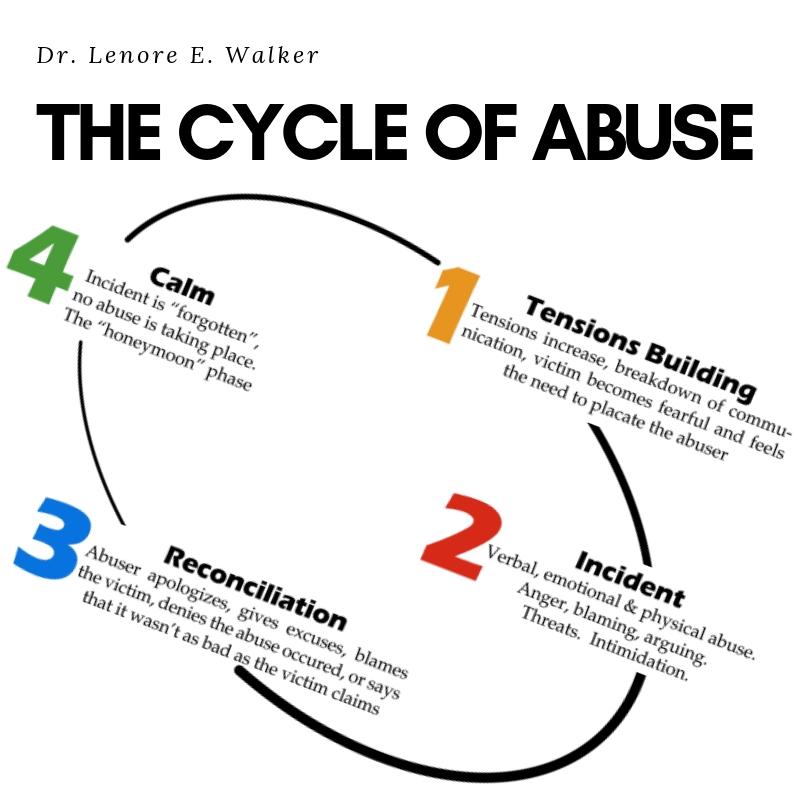 Regardless of any good intent behind the criticism or how constructive it is, those with NPD cannot reflect on their own behavior enough to see any truth behind the accusation. Instead, they typically become obsessed with proving you’re the one with a problem and demanding an apology.
Regardless of any good intent behind the criticism or how constructive it is, those with NPD cannot reflect on their own behavior enough to see any truth behind the accusation. Instead, they typically become obsessed with proving you’re the one with a problem and demanding an apology.
If you feel you have to address the issue, try to be smart about how you have the conversation. Someone with NPD will only be receptive to negative feedback delivered in small doses and laden with flattery. Instead of launching right into the discussion with your grievances against them, offer compliments first.
Specifically, try using the compliment sandwich approach, which involves both opening and closing the conversation with positive remarks about the person you’re talking with. For instance, begin by sharing what you love about them, then mention how they could change their behavior to improve your relationship. End with how confident you are they will be successful in making these changes.
2. Don’t Accept Harmful Behaviors
For the same reason it is typically futile to confront a narcissist, it’s unwise to argue with one. An argument with a narcissist can also quickly turn to verbal abuse due to their lack of empathy and interpersonal skills. Someone with NPD may even be able to manipulate you into believing you are the one with a problem by gaslighting you — a specific type of manipulation that involves getting someone to question their own reality.
Because those with NPD are concerned with themselves and tend to see themselves as the hero, they may attempt to blame you for their behaviors. They view themselves as victims because they refuse to recognize they may play a part in any problem. Continuing to argue with a narcissist will only reaffirm their preconception that you are the one attacking them. Instead, disengage from the conversation and do whatever you can to remove yourself from the situation.
If your toxic narcissistic family member becomes aggressive, abusive or emotionally manipulative, you must make it clear you will not accept that kind of behavior.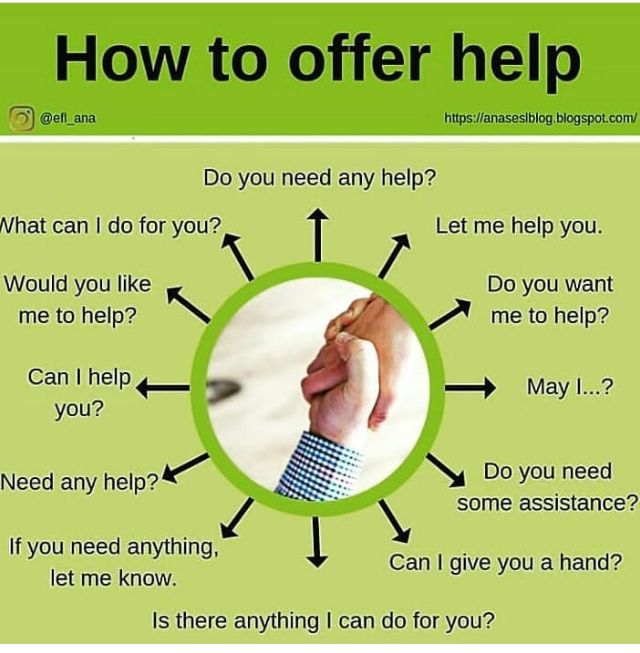
3. Focus on Choices
One key to dealing with a narcissist is focusing on choices, both yours and theirs. People with NPD often insist others treat them unfairly and don’t give them the respect they’re due. They fail to see how their own behaviors could impact the way others interact with them. When a narcissistic family member starts talking like this, simply remind them they have some choices in the situation. For example, remind them they can change how they act or who they choose to be around.
Keep in mind that you have choices, too. Even if you can’t completely eliminate contact with someone who has NPD, you can still take measures to protect yourself and make their behavior less harmful to you. You can choose to limit your time with them or make sure someone else is always around so you are never alone with them.
When restricting your contact with a narcissistic family member, clearly communicate your boundaries. Make sure they know you will break off contact if certain behaviors persist, and be specific about the circumstances and how you will respond.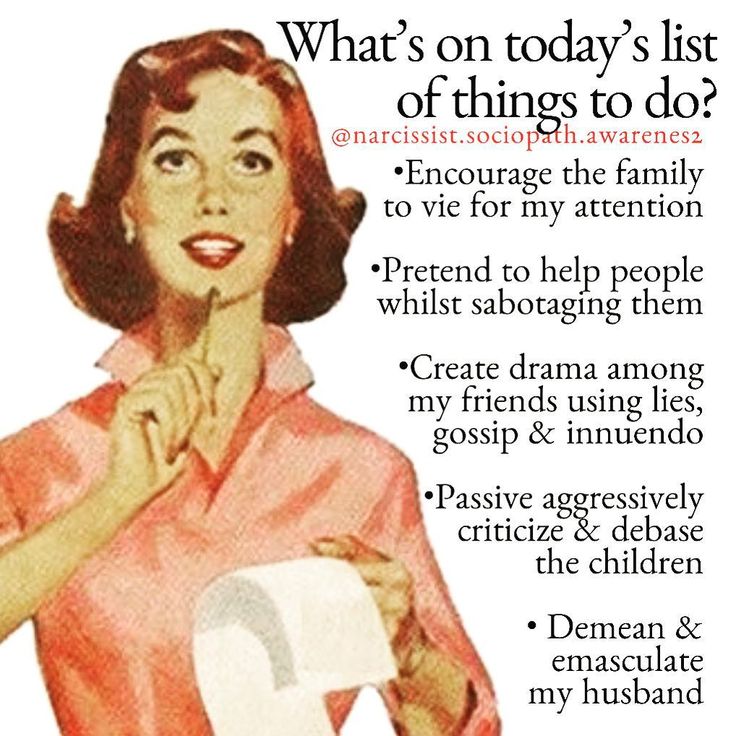 You can tell a narcissist you want to spend time with them, for instance, but if they make insulting comments about your career, you will have to leave the room. This technique puts the ball in their court by allowing them to choose whether or not to comply.
You can tell a narcissist you want to spend time with them, for instance, but if they make insulting comments about your career, you will have to leave the room. This technique puts the ball in their court by allowing them to choose whether or not to comply.
4. Set Limits
Unfortunately, those with NPD do not often have a sense of boundaries. They might resort to manipulating others to meet their needs. Although you cannot control the behaviors of a narcissist, you can control your own. Family members of a narcissist often become accustomed to enabling narcissists to avoid a fight. But you can refuse to participate in this cycle any longer by setting limits on what you will do.
You may stop allowing your narcissistic family member to speak to you disrespectfully anymore or quit agreeing with any disparaging words they share about others. You may also stop replying to texts so frequently or set a time limit on your phone conversations to avoid listening to rants.
Be prepared for the possibility that your narcissistic family member does not respect your boundaries.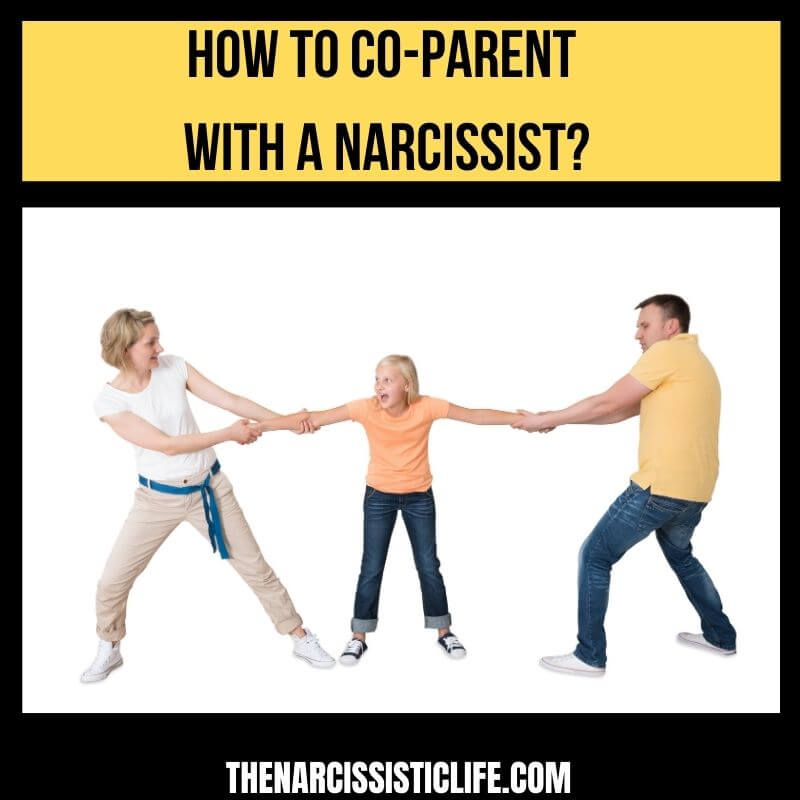 Those with NPD tend to view themselves as the most important person in the world. Despite your best efforts to reach a compromise, the only effective solution may be to cut off contact completely. If this is the case, there is no shame in cutting ties for the sake of your own mental health.
Those with NPD tend to view themselves as the most important person in the world. Despite your best efforts to reach a compromise, the only effective solution may be to cut off contact completely. If this is the case, there is no shame in cutting ties for the sake of your own mental health.
5. Get Support and Professional Counseling
When dealing with a toxic narcissistic family member, it’s essential to have a strong support system and receive counseling from a mental health professional. Dealing with a narcissistic loved one can feel lonely and induce low self-esteem due to all the insults, public humiliation and other forms of abuse. Try to be gentle with yourself and protect yourself from being gaslit into believing you’re the one at fault.
With the support of friends and professional counselors, you can gain perspective and learn you don’t need to be ashamed or embarrassed about your situation. Discussing what you’re going through with a counselor can help boost your confidence and help you decide on the best approach to interacting with your narcissistic family member.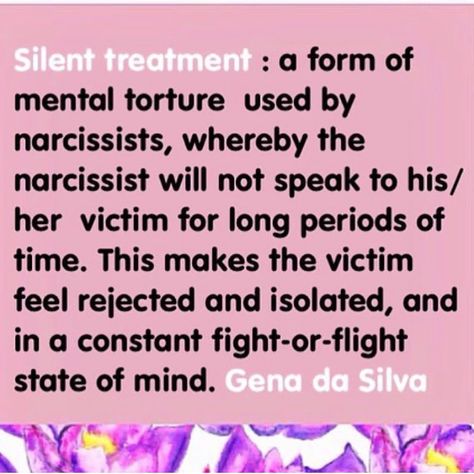
Whether you decide to cut ties or get the distance you need in another way, counseling can offer the resources you need to stop enabling a narcissistic family member while remaining connected as a family.
Related Articles & Resources:
- 10 Ways To Set Boundaries With Difficult Family Members
- Signs of Gaslighting and How to Respond
- When Is It Time To Ask For Help?
- Why Do I Attract Toxic People?
- Family Counseling
- Individual Counseling
How to Support Someone in a Narcissistic Relationship
There aren’t many people who take the time to educate themselves on the complexity of narcissism. Instead, victims of narcissistic abuse are forced to endure narcissistic behavior and are shamed, denied, or ignored when they confide in the uneducated, also known as enablers. Narcissistic behavior patterns are designed to degrade the emotional stability of the victim so, the neglect victims of narcissistic abuse receive from enablers has the potential to be detrimental to their mental health.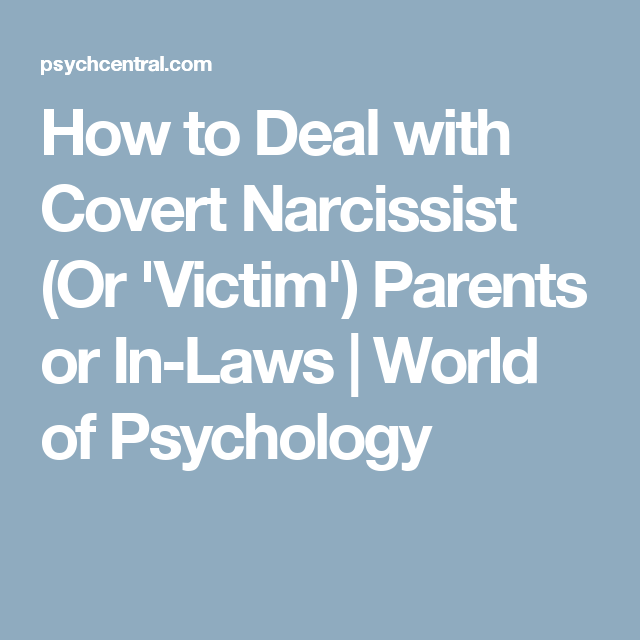 Thankfully, transforming from an enabler to a supporter is very simple, and it starts with empathy. In this article, we are going to unpack how to support someone in a narcissistic relationship.
Thankfully, transforming from an enabler to a supporter is very simple, and it starts with empathy. In this article, we are going to unpack how to support someone in a narcissistic relationship.
If you’re able to approach a victim of narcissistic abuse with a comprehensive grasp of the behavioral patterns that usually accompany the trauma they’ve endured, you’ll be much more likely to support a victim of narcissistic abuse, rather than enable their abuser.
Self-DoubtIf the person you’re trying to support has difficulty making simple decisions on daily activities like deciding what clothes they want to wear, it could be a strong indicator that they have lost trust in themselves which is very common within victims of narcissistic abuse.
“My sister is a fantastic cook, always has been. It’s been her passion for the longest time. However, a year into her relationship with her ex-husband, she stopped cooking. I was so confused because she loves it so much, so I asked her what was up.
With the most heartbreaking tone I’ve ever heard, she told me she wasn’t a good cook, she never has been a good cook, and that her husband got sick from her cooking, so she doesn’t want to hurt anyone else.” – The sister of one of our participants.
Narcissistic behavioral patterns are designed to erode the emotional stability of the victim therefore the loss of one’s identity is very common in narcissistic relationship.
Sense of HelplessnessIf the person you’re trying to support has alluded to the sense of being helpless in their relationship, it could be a strong indicator of narcissistic abuse. Here is a good example of this feeling from a journal entry from one of our participants on January 12th, 2019.
“What more can I do? I’ve tried to be nice, give him some distance, be clingy, everythinggg… no matter what I do, he calls me passive aggressive, accuses me of cheating, tells me to give him space… do I keep trying? Aren’t all relationships supposed to be hard? I feel so defeated… I don’t know what to do…” -anonymous
This could potentially be a sign of a narcissistic relationship because when it comes to narcissists, nothing is good enough.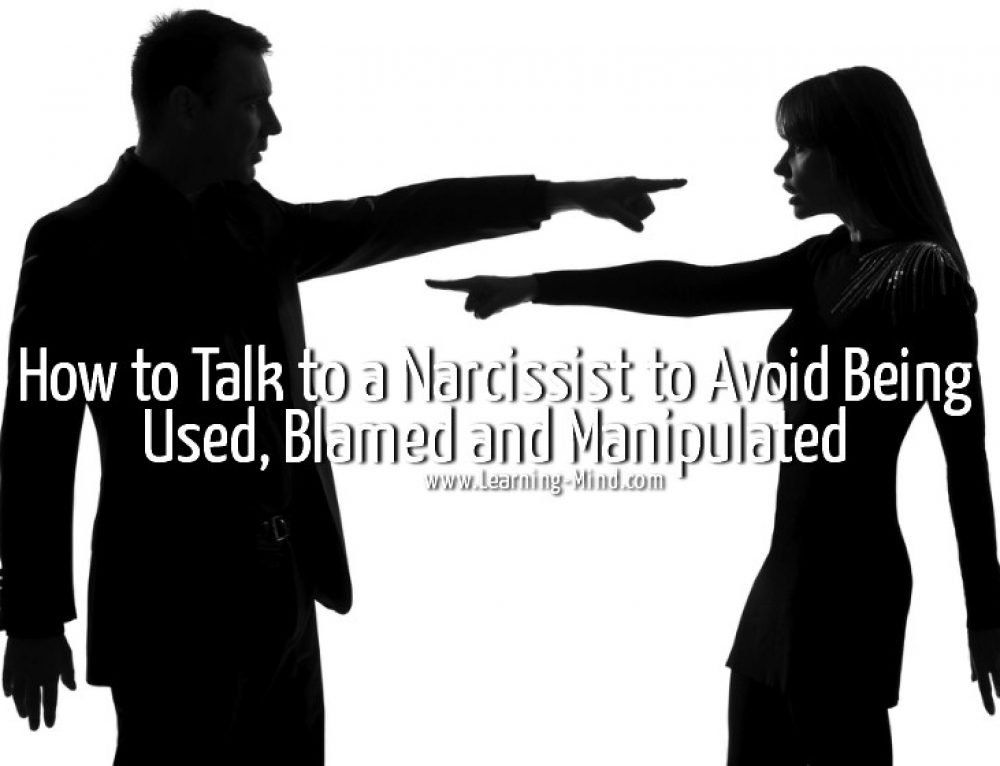 They feed off the chaos that comes with someone constantly trying to cater to their needs.
They feed off the chaos that comes with someone constantly trying to cater to their needs.
Social withdrawal is common among victims of narcissistic abuse for a variety of reasons. It’s possible for victims of narcissistic abuse to be afraid of being judged, embarrassed and ashamed that they’ve let someone treat them the way their abuser does.
Another possibility is that the victim of narcissistic abuse has acknowledged that what their abuser is doing is wrong. But socially withdraw because they aren’t ready to hear others acknowledging it as well.
Rumination & Anxiety“I was extremely defensive over him even though I knew some of the things he was doing was wrong…” -Brie Robertson
Rumination is when someone continuously thinks about the same thoughts, which can cause an extremely high level of anxiety. In narcissistic relationships rumination and anxiety can manifest in these ways:
- Anxiety about what will happen if the relationship ends or continues
- Not wanting to leave the relationship out of the fear that their abuser will be better for the better person
- Wondering if they’re to blame for the abusive relationship
- Wishing for things to be different
- Wondering if they had done (X) differently if their abuser would still be abusive
It’s important to remember that guilt is a huge part of narcissistic abuse, which is why many victims of narcissistic abuse are incapable of acknowledging that they are being abused.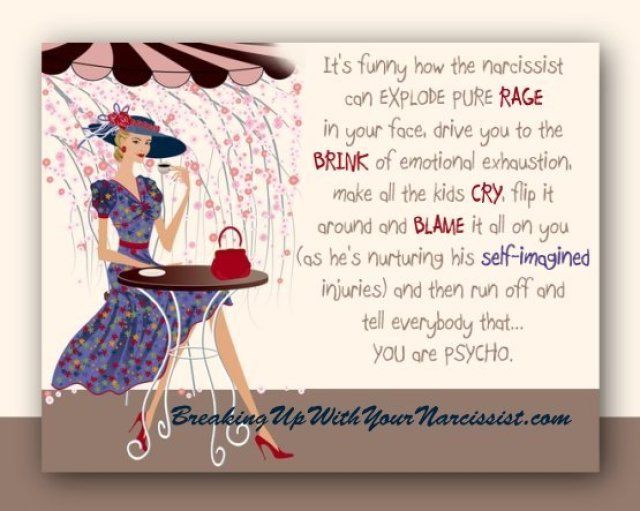 Narcissist’s insecure need to look good, and fit in, creates manipulative tactics like projection, gaslighting, and love bombing, that are designed to reinforce their charming persona they embody to hide their crippling emotional instability.
Narcissist’s insecure need to look good, and fit in, creates manipulative tactics like projection, gaslighting, and love bombing, that are designed to reinforce their charming persona they embody to hide their crippling emotional instability.
After being subjected to such an extreme level of manipulation for an extended period of time, victims of narcissistic abuse could very well feel guilty, ashamed, and afraid to acknowledge what they are experiencing is wrong. Labeling the behavior, they are experiencing as narcissistic could cause the person you’re trying to help, to shut you out.
Imagine you witnessed your friend and their narcissistic abuser get into a huge altercation. Instead of pointing out all of the narcissistic behavior you witnessed, a much more helpful approach to support your friend would be to check in on their wellbeing and if they chose to talk about what happened, focus on the behavioral patterns they are experiencing.
If you focus on the behavior rather than aggressively labeling their abuser as abusive, you have a far better chance of remaining their much-needed line of support.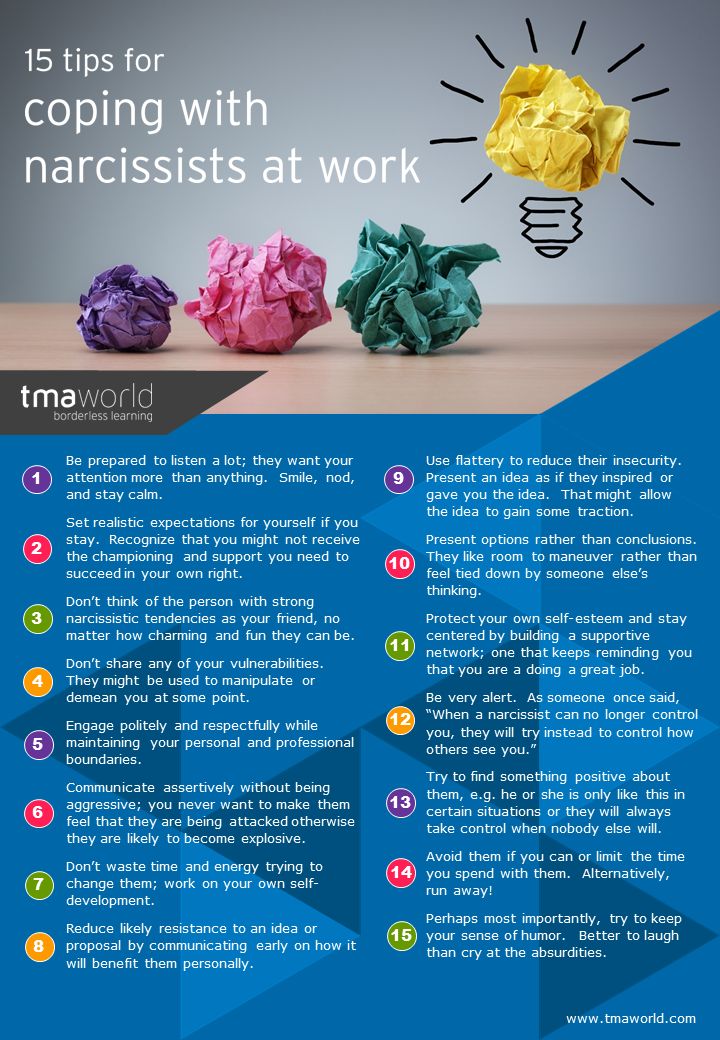 There’s a possibility that they may shrug it off and tell you that they are fine, but it’s still worth a shot.
There’s a possibility that they may shrug it off and tell you that they are fine, but it’s still worth a shot.
With that being said, even focusing on behavioral patterns could be too much for a victim of narcissistic abuse. Narcissists have an arsenal of manipulative tactics designed to disguise their abusive behavior. Instead of bluntly calling out their abusive behavior, a more subtle way could be to simply tell them you saw what happened and ask if they’re okay. For victims of narcissistic abuse, having their reality acknowledged and validated is immeasurable.
Listen And Be Empathic… so, my father was a narcissist for sure, but my mother wasn’t. She was just too afraid to stand up to him. Whenever I would try to confide in her or ask her to tell my father to stop, she would just gaslight me and tell me that I was being dramatic. It was so hard to understand what was going on, I didn’t know what to do or how to feel. The only time I felt sure about myself was when my sister, who was the truth teller, would give me a hug, hold my hand, kiss me on the cheek, and ask if I was okay… Her kindness is something that I’ll always cherish…” Dominic
When I first met one of the 67 survivors of narcissistic abuse that we interviewed, Brie Robertson, I thought she was lying. Narcissistic abuse is so outrageous and unbelievable that I caught myself being skeptical on many occasions. I couldn’t understand how someone could be so evil.
Narcissistic abuse is so outrageous and unbelievable that I caught myself being skeptical on many occasions. I couldn’t understand how someone could be so evil.
I was able to learn about the complexity of narcissism very quickly, so my suspicions faded away immediately, but not everyone is able to see the truth as quickly as I was. If I were to continue to be judgmental, ignorant, and blind to Brie’s reality, I would’ve become her abuser’s enabler.
Enablers are people who allow narcissistic behavior to continue because they themselves don’t understand the complexity of narcissism.
When a victim of narcissistic abuse has the courage to acknowledge the abuse and confide in someone else, being an enabler can be just as damaging as being a narcissist because, you run the risk of gaslighting the victim as I showed in the photo above.
In narcissistic relationships, victims are unheard, and empathy is non-existent. It is not our place to decide the severity and validity of someone else’s trauma. Listen, support, and be empathic towards their reality.
Listen, support, and be empathic towards their reality.
The most unhelpful thing that you can do is to believe that you have the knowledge and/or ability to fix the situation. One of my favorite pieces of advice to pass on to victims and survivors of narcissistic abuse, is to let go of the wish for things to be different. I stumbled across this piece of advice while watching Ariel Leve talk about her narcissistic mother in a TED Talk. This advice is designed to help those affected by narcissistic abuse, to understand that their abuser is not going to change.
Part of the reason that narcissism is so devastating is because more often than not, victims and survivors of narcissistic abuse rationalize and justify the abusive behavior they’re enduring by blaming everything but their abuser, including themselves.
It’s really important to give good advice when you’re trying to support someone in a narcissistic relationship. The difference between an enabler and a supporter is the advice they give, failing to be a supporter will most definitely make the situation worse.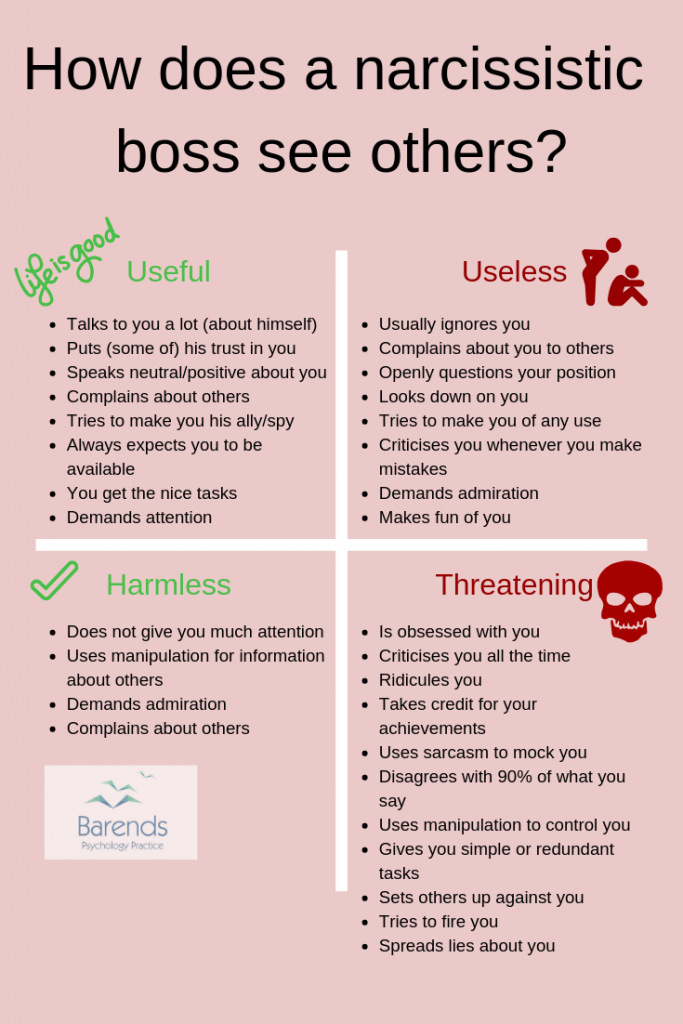
It’s also important to know when and how to provide educational resources and referrals to therapists. At first, educational resources and therapists are not the answer. As their friend or supporter, your number one priority is to offer them a safe place to talk and genuinely be heard.
It can be overwhelming to be bombarded with therapy recommendations and educational resources. Being a supporter and a friend means that you are present, genuine, and compassionate. Throwing unsolicited educational resources or therapeutic recommendations is extremely unhelpful at first. You should wait until they are comfortable to open up with a stranger like a therapist or read about the complexity of narcissism.
Ensure That You Don’t Criticize, Shame, Or Gaslight Victims of Narcissistic AbuseYou can almost guarantee that a victim of narcissistic abuse has already criticized, doubted, and shamed themselves for the abuse they’ve endured. It’s so important to ensure that as a supporter or friend, you don’t add more pressure on their internal struggle.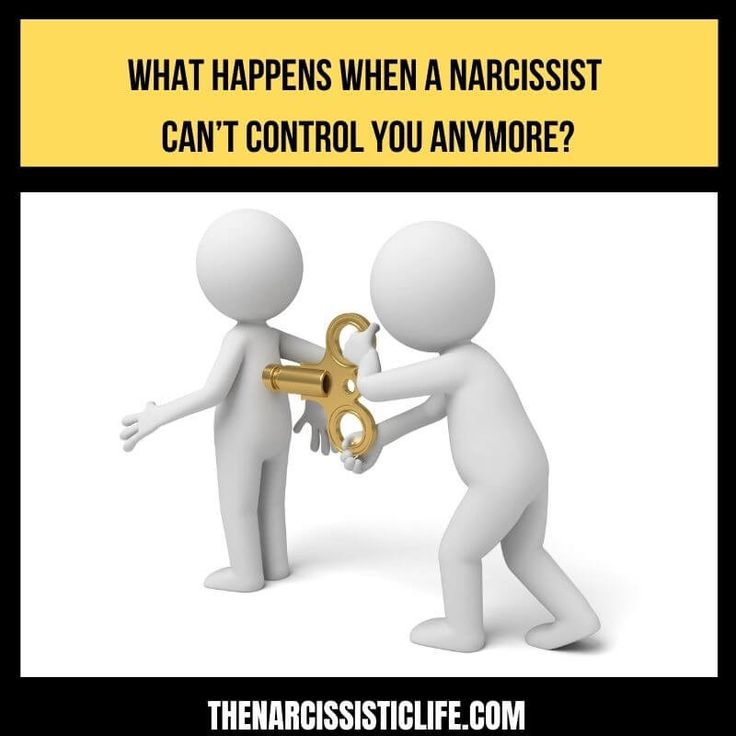
Gaslighting usually occurs when a narcissist doubt their victim’s reality and ability so frequently that the victim becomes consumed with self-doubt and subsequently can’t trust their own perception of reality.
There are many manipulative tactics that narcissists use that are designed to reinforce the concept behind gaslighting, like projection and scapegoating, but with the wrong approach, non-narcissistic people can accidently gaslight the victim of narcissistic abuse they are trying to support.
At a quick glance this could look like an ignorant comment that a victim of narcissistic abuse could easily shrug off because they know the truth.
But it’s not that simple…
Victims of narcissistic abuse are forced to live in an environment designed to chip away at their emotional stability and cause an immeasurable amount of confusion and self-doubt.
Educate Yourself on Narcissism Before Trying to Support Someone in a Narcissistic Relationship“It was really hard to survive my narcissistic relationship because the people I would normally confide in didn’t understand narcissism.
So, when I went to them, they would accidently gaslight me by saying things like … are you sure that really happened Rebecca? That’s not the Mark that I know, he’s such a good kid… it was detrimental for me because 90% of the time I wasn’t trying to open up about my abuse, I was trying to get validation and reassurance for the way I felt because I wasn’t 100% sure that it was actually abuse. Even though it was clearly abuse, I still needed validation. Instead, I received denial, criticism, and doubt for years. I was so alone” Rebecca
Having the ability to approach the trauma that comes with narcissistic relationships is extremely valuable. To do so, you must educate yourself on narcissistic behavior. This is a must for both those who are trying to figure out how to support someone in a narcissistic relationship, along with victims and survivors of narcissistic abuse.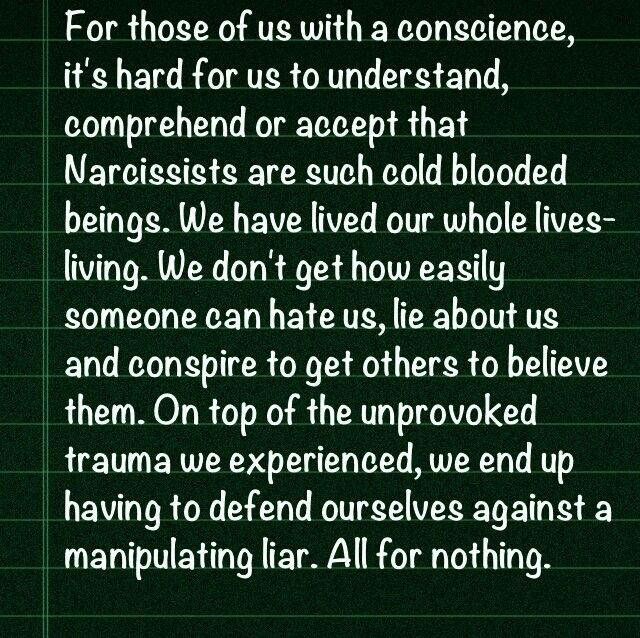
When you do so, it’s important to remind yourself that just because you’re now educated on narcissistic behavior, doesn’t mean you have the answers. You may be able to provide extremely valuable advice about how to set boundaries, go gray rock, or even know contact with a narcissist, but the answer will always need to come from the victim or survivor of narcissistic abuse
What Should You Takeaway From This Article?The most important thing to understand when learning how to support someone in a narcissistic relationship, is that your only purpose is to offer a safe environment where their voice will be heard and respected. You need to understand that as a supporter or friend, it is not your place to decide what the right thing to do is.
Narcissistic abuse doesn’t end when the relationship ends. It takes a huge toll on the psychological stability of victims. Yes you should offer educated and actionable guidance when the time is right, but they must see the abuse themselves.
They must put an end to the justification and rationalization behaviors themselves. Failing to do so will trap them within the abusive cycle either physically, psychologically, or both.
Get a Free Healing Bundle Every Week!
- 1 Educational Video From a Mental Health Professional
- 1 Informative PDF About Narcissistic Abuse
- 1 Journaling Exercise With Multiple Prompts
- 7 Affirmations for the Upcoming Week
- Lifetime Access to Our Private Online Community
Get a Free Healing Bundle Every Week!
- 1 Educational Video From a Mental Health Professional
- 1 Informative PDF About Narcissistic Abuse
- 1 Journaling Exercise With Multiple Prompts
- 7 Affirmations for the Upcoming Week
- Lifetime Access to Our Private Online Community
All of the content that Unfilteredd creates is for educational purposes only and is not intended to be a substitute for clinical care — please visit here for qualified organizations and here for qualified professionals that you can reach out to for help.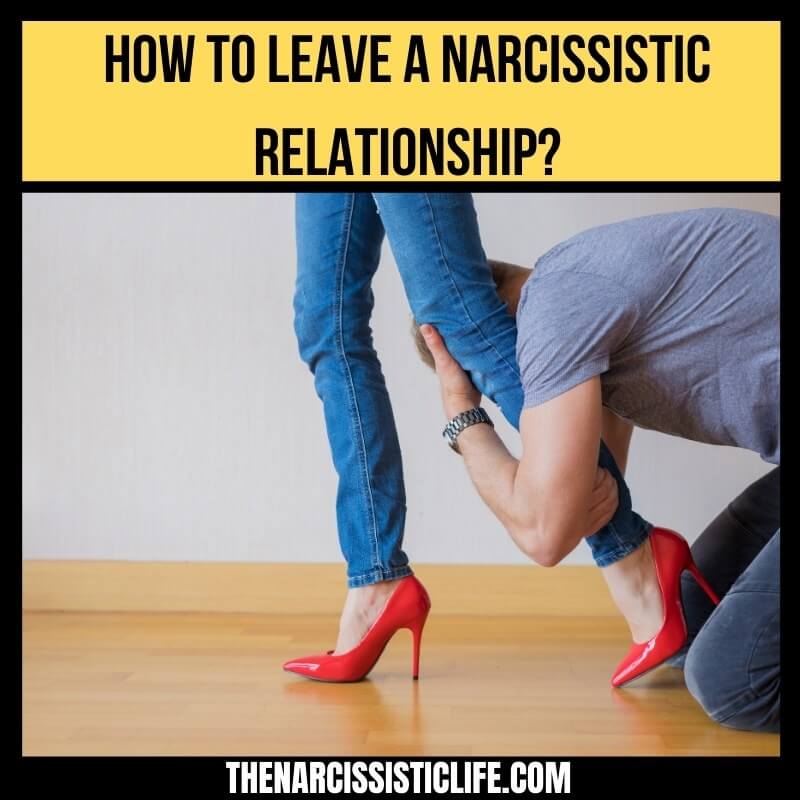
References
Interviewing 67 survivors of narcissistic abuse
Navigating Narcissism in Family, Friends, & the Workplace
Suggested Readings
The Power of the Narcissist: 9 Steps to Freedom
188,154
Man among people Man and woman
The feeling of love that we experience at the very beginning of a relationship with a narcissistic personality is experienced much more strongly than in a healthy relationship. The reason is that a narcissist (male or female) floods us with declarations of love almost from the first days, does not tire of admiring, seeking advice, assuring that we are perfection itself, he or she met the best person in his life and is ready for us to all.
This is called "love bombing". Then the tactics change - the narcissist seems to retreat a little, his love confessions become less frequent, calmer, and finally the stormy ocean turns into a meager stream. It is a form of manipulation, control, and conditioning that the narcissist uses to keep us in his power.
There is no doubt that we loved. The only problem is that narcissists cannot love us back.
When communicating with them, it is better to rely on your inner instinct, and not on the strength of your feelings. We tend to get so trapped in our feelings that we lose the ability to hear the alarm bells and red flags that come with a toxic relationship. Narcissists cannot keep a face for long - very soon their facade cracks. But they are masters of their craft and, if you are inexperienced, can easily put you on the hook.
1. Arm yourself with knowledge
The most important and first thing to do to get out of the trap is to learn as much as possible about what narcissistic personality disorder is, how narcissists work, their typical behavior and techniques.
You need to arm yourself with knowledge. Repeat and repeat over and over again. Until you study them properly, you won't be able to free yourself from their toxic hook - narcissists make us feel obligated by playing on our sense of duty, conscientiousness.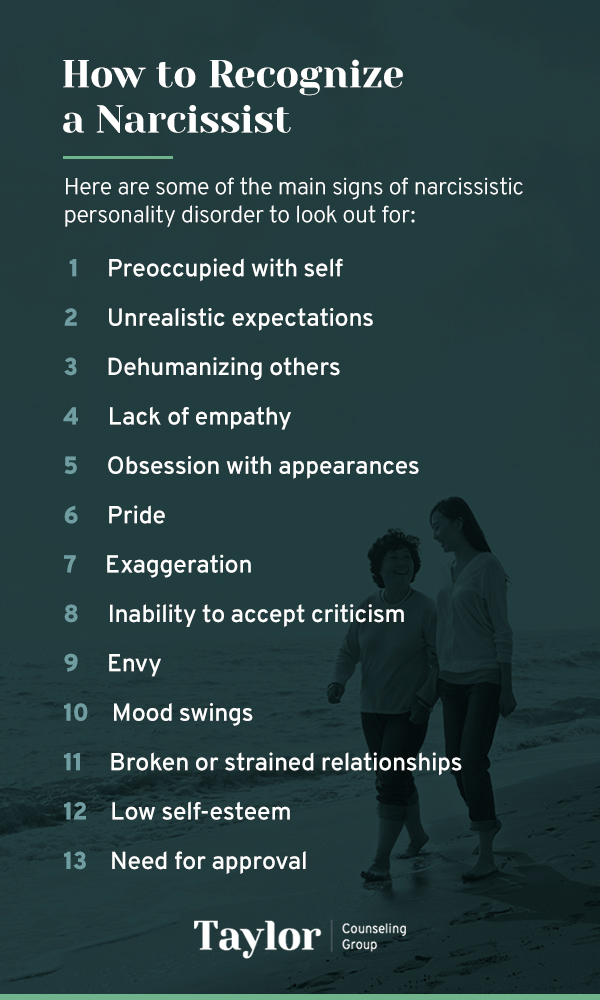
Feeling sorry for the narcissist when he or she has you trapped is pointless - they are just using your feelings against you. It is necessary to discard false pity in order to clearly see what you are dealing with.
2. Trust your intuition
Watch yourself — learn to separate feelings and deep inner feeling, intuition. Start trusting your intuition, not your feelings. Associating with a narcissist weakens physical, mental and emotional health because we are trying to understand a person whose behavior contradicts words.
Instead of listening to what they say, watch what they do. Words lie, actions reveal the truth. We really get to know people through their behavior. Words are just a breach of your trust.
You feel sick and exhausted because your mind and body tell you that you are in great danger, but everything seems to be fine (because he or she tells you so). Once again, trust your gut instinct. Become a cold-blooded explorer. Silently observe what is happening.
Silently observe what is happening.
3. Don't put yourself in their shoes
Go back to where you belong. It's a matter of awareness. Mentally note how difficult it is to do this - these are the consequences of narcissistic processing.
Don't try to guess what they have in mind, imagine their next steps. Putting yourself in their place means trying to understand their motives, justify them, find a reasonable explanation for their behavior, and eventually get bogged down again in the poisonous swamp of their verbal manipulations.
When you catch yourself trying to "get into the narcissist's head," do your best to distract yourself. It's hard and it takes a lot of fortitude not to give in to the brainwashing they put on you to make sure they've taken over all the space inside your head.
4. Ignore the messages
For the narcissist, information has no meaning, its only purpose is to suck you into the swamp of manipulation.
The task is not to figure out whether to believe or not to believe the words of a narcissist. It is about breaking out of the vicious circle in which you think day and night only about what is connected with the narcissist.
Do not listen or pay attention to the content of the speeches that the narcissist makes. This is their way to take out your brain to draw you into their world and keep you where you always find yourself in the role of bad and guilty. They will keep pushing your boundaries and blowing the fuses that signal you are approaching the boundaries to constantly keep you on your toes, unbalance, disturb your peace.
Trying to find common sense in the speeches of a narcissist is to force your brain to work in a stressful mode, it gradually drives you crazy. Know that no matter what they say, narcissists are seeking some benefit for themselves, no matter how logical or beautiful their words sound. Everything is only about them and for them, and the only desire of a narcissist is that you, too, be only about them and for them.
They will do and say anything to keep you trapped in their little fantasy world. Once again: watch what they do (not say).
5. Protect your property and savings
If necessary, start saving money. Remember that they can completely bleed you. Protect everything that is of value to you. Acting from noble feelings and wanting to remain fair, you risk eventually being ruthlessly abandoned without a livelihood.
6. Silence is golden
When we love, we want to share our thoughts and feelings with the person we love — this is natural. But you do not have a loved one, you are dealing with a narcissist who pretends to be your soul mate.
Resist the temptation to tell them everything you think and feel
You can't move them. They use your trust against you. The more open you are, the more guns and knives they have in your back. Narcissists love it when you share.
If you have to say something, protect yourself as much as possible - don't tell the whole truth, be neutral, obscure or change the subject.
7. Who are you?
Deal with yourself, what you believe in, what is dearest to you in this world, what you want to live and die for. Otherwise, anyone can convince you of anything. Without knowing ourselves, we cannot set boundaries in a relationship - what we are ready to tolerate and what is categorically not. Strengthen your value system and protect what you hold dear. Then you will know what to do and how to behave, instead of hesitating and bending under the onslaught of someone else's will.
8. Be patient
Continue to observe and analyze. By learning the basic manipulative techniques of narcissists, you will be able to recognize them accurately. This is a great help in the process of freeing yourself from the illusion of "great love to the grave", "faithful" friendship or family idyll that narcissists have played for you.

Liberation does not happen overnight. It's not a sprint, it's a marathon. Be kind and patient with yourself. You learn to act and live in a new way - rethink, clarify yourself and your life principles, move to a new level of relationships with others. Give yourself time to deal with everything that's going on.
9. Feed your soul
Help others, little by little, quietly and anonymously. Say something nice, even to a stranger. Fulfill one of your little wishes, just for yourself. Draw strength from religion if you are a believer. Breathe deeply and remind yourself that one day you will be free and the joy of life will return to you.
Text: Ksenia Tatarnikova Photo Source: Unsplash
New on the site
“I can't look people in the eye. What to do?”: 3 simple tips
“I hate chatting on the Internet, I ignore my friends' messages for hours. What happened with me?"
How to love yourself? 7 Steps to a Healthy Relationship with Yourself
“I’m sorry, but it’s not my fault”: 4 mistakes in apologizing - ask for forgiveness correctly
“Godfather pester me and jokingly offers sex, but my husband never stands up for me”
“ I hesitate to charge for my work.
Am I afraid of accepting money?
How to understand that you have met your future wife: 5 signs - men's opinion
How to Revitalize Relationships: 9 Tips - Apply to Your Couple
How to Help a Person with Narcissistic Disorder, Therapeutic Reflections - Gestalt Club
How to Deal with Narcissistic Disorder - sharing what brought out of the specialization in psychopathology in the Gestalt approach in KGU.
There are three main difficulties in helping a narcissist. The first of these is that the narcissist cannot show that he needs help. After all, this means admitting one's weakness, deficiency, some kind of insufficiency that automatically causes a feeling insignificance. Thus, he, as it were, cuts off the resources of the external peace.
Still, some narcissists reach psychotherapists. With what? Usually with the fact that they have either lost the source of their confirmation coolness, or are afraid to be exposed in their imperfection.
Or they suffer from narcissistic trauma - grow old, lose power, money, beauty - because of which they fall into a narcissistic depression. Which in itself means an additional blow to self-esteem, which makes narcissists even more humiliated and desperate.
But narcissists don't go to a therapist for help - they buy a service to restore "okness". No matter what to to the hairdresser go, which must return back to normal. For them, the psychotherapist is the same object as everyone else in this the world. As, however, they are for themselves. And the more pronounced narcissism, the more such a client will bargain: for a price, for meeting conditions, for something else - if he already confesses his deficiency, then at least somehow he must restore his coolness.
And if the narcissist gets into psychotherapy, difficulties begin already at the psychotherapist. So, the second difficulty is the compulsion tolerate such behavior. Not everyone survives, and many give up narcissists.
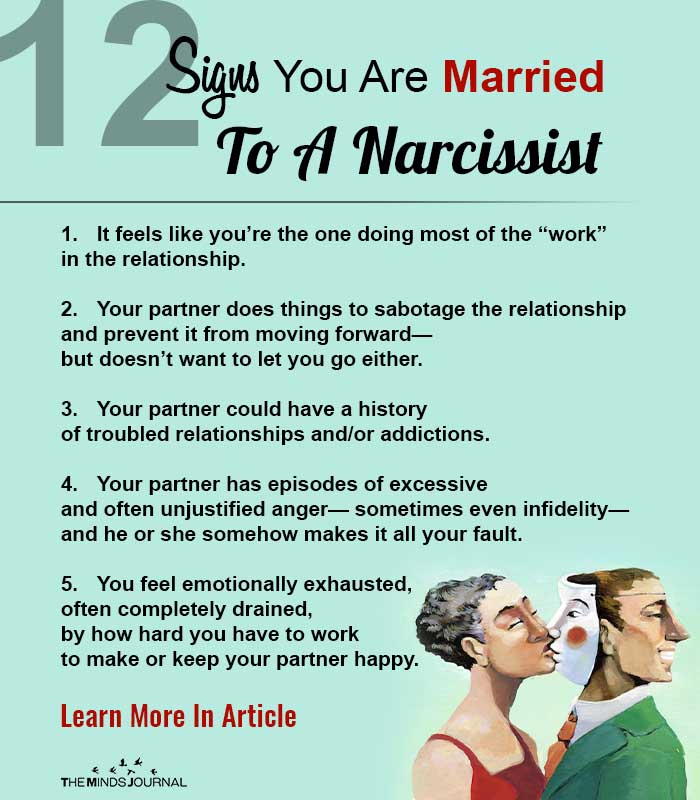
The third difficulty is that the narcissist causes him to split into human part and professional.
Human wants to help the client, to notice his helplessness and scarcity and somehow treat it, which in itself can be a blow to the coolness of the narcissist. That is, he can simply leave from therapy. Either the therapist, having shown his human vulnerability, thus for the narcissist shows his professional insolvency. That is, it is very disappointing that also forces you to get away from it.
The professional part wants to look beautiful and strives to also do not lose face - to prove your coolness. Near a narcissist to a psychotherapist no matter how you want to look like with anyone super professional, have the best office with diplomas in expensive framework and as quickly and efficiently as possible to cure the client from narcissism. After all, the narcissist imposes huge hopes, and let him just try not to justify them. Not everyone the psychotherapist is ready to sign this - he pulls himself up own narcissism.
What leads therapy to a paradoxical impasse, for narcissism is not treated by narcissism.
There is great tension between these parts, and the psychotherapist has to endure it, because in order to work with narcissist should not fall into any of them, but support both.
And if the therapist succeeds, then you can try do something.
If we talk about interruptions of contact, then with egotism, and - the main thing is retroflection and fusion.
If we talk about feelings, then we have a lot to do with shame. After all, it is shame that creates a narcissistic disorder - many microtraumas and specific traumas of rejection. Because if a child needs to maintain the acceptance of his family, he is ready give up any living part of yourself, not feel it (fusion), do not show in any way (retroflection) and constantly monitor suitable image (egotism). The slightest deviation from the right image was always accompanied by shame, and then self-shame.

Facing shame requires trust. Again, this is not easy. because the narcissistic client projects judgment anyway, and then interprets everything evaluatively. Works well in such cases. self-disclosure of the psychotherapist, his meeting with his shame. Here, again, it is important not to overdo it, as this can cause disappointment of the client and, as a result, a break in contact.
But the main healing occurs in long-term therapy. When gradually the client gets a new experience - subjective to himself relation. After all, it was created by an object relation - when it were taken for meeting expectations: for the result, for achievements, for some quality. But they did not notice at all the processes that he experienced - the excitement with which he started something, or disappointment if something didn't work out.
on the quality of the drawing, and not on how the child wanted to draw, how tried, and now wants to be recognized. Exactly the same a narcissist, accustomed to this for many years of his life, tempts the psychotherapist to evaluate it in some way.
But the best that can make a psychotherapist - treat this or that life client process. This attitude is not always a narcissist. understandably, he often gets lost and demands results, but that's how he can get that new experience that will change his life. That is, the client has to be slowly and gradually humanized. Then there is a chance for healing.
How can you see it? On "wet" depression. Daffodils are often get depressed, but narcissistic depression is “dry”, that is, evaluative “I am shit”, “I can’t do anything”, etc., with which the narcissist does not cry, but rather wets himself selflessness.
But when a person is grieving, that is, he has reactive depression - he says goodbye to something important. And if so, then he mourns that a suitable image, which he built and shored for a long time. But now this the image does not fit, does not work, the false "I" must die in order to open the way for the real "I". It feels almost physically how real death is - therefore, not all narcissists decide on such changes.
